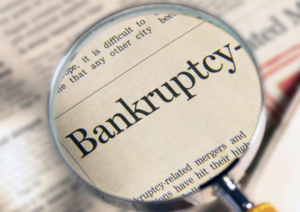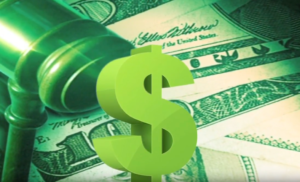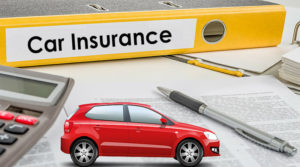Expert answering your Bankruptcy Question
Question by Big Bear : Chapter 13 disposable income vs repayment plan and secured/unsecured debt? Question about info/rules on disposable (dis.) income and how it applies to Chapter 13. I completed Form 22C to see what an estimate of dis. income would be and calculated ~ $ 1300 (after taking gross monthly income and subtracting allowable deductions). First question, is this ($ 1300) the repayment plan or is a part of the repayment plan? Second question is how does this work w/ secure vs unsecured debt. Is secured debt considered (A) a part of dis. income or (B) in addition to the dis. income. For instance, if (A) it would seem that if you have 2 car notes (calculated for the value divided by 60 on Form 22C line 47) for $ 400 or $ 1000, it would not affect the monthly Ch. 13 repayment…only means that the unsecured creditors would get less…so, no benefit to having 2 low car payments since monthly repay doesn’t change. If B) implies that unsecured creditors get all $ 1300 and the monthly repayment would increase by either $ 400 or $ 1000, the amount of the 2 car payments. Which is correct? 
Best answer:
Answer by Joe the Expert
If you are going to file bankruptcy: Push for Chapter 7.
Find a Lawyer who can guarantee you Chapter 7 treatment.
Chapter 13 has all the downside of Chapter 7 with NONE of the benefits a Fresh Start.
In Chapter 13 you will be a SLAVE to your creditors for years.
If you can’t get Chapter 7 treatment find another way out this situation!
With a Good Lawyer most people who truly are in trouble can get Chapter 7.
Oh and you can thank your Congressmen and Senators for being in Bed with the Banks and Credit Card Companies for this situation.
Credit Card Companies have NOW Become LEGALIZED LOAN SHARKS!
Everyone should write your Congressmen and Senators to STOP THIS ABUSE and END this LEGALIZED LOAN SHARK Game! You will all be affected by this at some point over your lifetime.
I have seen several people go through this game and I have experienced some of this myself. Now articles are being written on it.
Your Credit Card Interest Rates should never Increase because you were 1 day late or ever a couple of hours late (In my case/ I pay through the internet) on your payment and this happens if you do it Only ONE TIME. Yet this is what the LEGALIZED LOAN SHARKS are doing! 
They are even changing the time period between the day you receive your bill to the day its due. They are shortening it by 1 day per billing cycle. They are hoping that you don’t realize the change and that you will be late on a payment so they can Raise you up to the default interest rates and Steal your Money. This is what the Legalized LOAN SHARKS are doing!
All with the blessing of the U.S. Congress!
Read This:
There’s a new, completely legal game they’re playing, and it can literally wipe you out financially if you’re not careful.
The Universal Default Clause
If you own a credit card, you know by now that if you’re late with a payment the credit card company will charge you a late fee in addition to raising your interest rate. But did you know that they can raise your interest rate if you’ve made a late payment on any of your other cards, including those issued by other companies?
Not only that, but your interest rates can skyrocket to 30 percent or more if you make a late payment on your car loan, mortgage, or even your phone bill!
“How can that be legal?” you may ask. The answer is found in the fine print of your credit card agreement, and it’s called a universal default clause. According to the Institute of Consumer Financial Education, currently almost 40 percent of credit card issuers apply this policy to their customers.
A Late Payment ‘Trigger’
Generally, a universal default clause states that a creditor reserves the right to penalize you with an increased interest rate if you’re late — that is, in default — of a payment to any other creditor. They justify this practice because, in theory, if you pay any of your creditors late, you pose a greater credit risk and are less likely to pay your debt.
Your creditors also have the right to routinely monitor your credit file. So a creditor with a universal default clause will be watching — and waiting.
Let’s say your Visa card has a universal default clause. Any late payment — whether it’s on your utility bill, home equity loan, or Macy’s credit card — acts as a “default trigger” allowing the bank that issued the Visa card to double or even triple your interest rate overnight. Your all-important credit score will be hurt as well.
According to a study by the nonprofit advocacy and education group Consumer Action, the top three default triggers that cause your interest rates to spike are a decline in credit score, paying your mortgage late, and paying your car loan late.
Other Triggers to Worry About
Under the universal default clause, your interest rates can be increased for several other reasons, including exceeding your credit limit, bouncing a check, having too much debt, having too much credit, getting a new credit card, applying for a car loan, and applying for a mortgage loan.
How does this affect your financial future? Take a look at the numbers. Let’s say you’re an average American household, with $ 8,000 of credit card debt. Assuming you make no additional purchases on your card, you have a 9 percent interest rate, and you make the minimum monthly payment, it’ll take you 218 months (18 years) to pay off your debt and you’ll end up paying $ 3,334 in interest.
Now let’s assume that for whatever reason you were late one month with your car payment. This late payment triggers the universal default clause with your credit card issuer, and now your penalty rate gets increased to 24 percent (the average default rate in 2005). It’ll now take you 679 months (56 years) to pay off your credit card debt, and get this — you’ll pay $ 30,813 in interest. Link to this full story: http://finance.yahoo.com/expert/article/millionaire/26303
for more questions visit this website please
This is all true people WAKE UP and FIGHT BACK!






